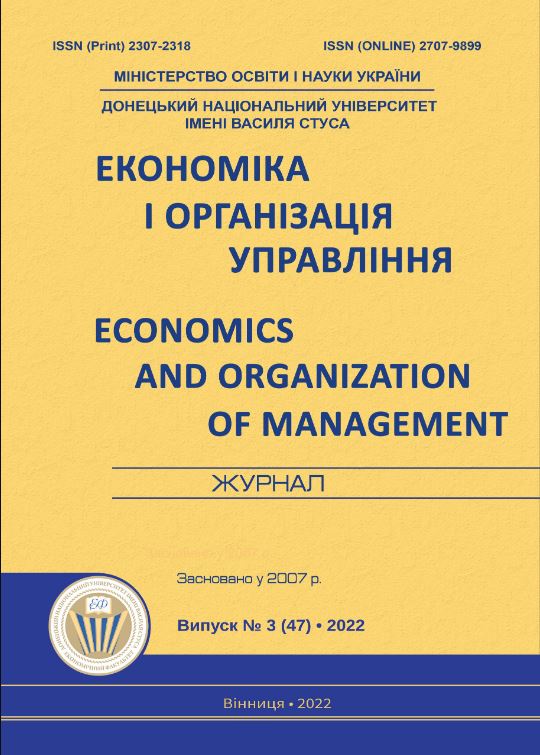Transformation processes in global value creation chains under the influence of digitalization
DOI:
https://doi.org/10.31558/2307-2318.2022.3.12Keywords:
transformation; business processes; global value chains; business processes; business process managementAbstract
The paper analyzes transformational processes in global value chains under the influence of digitalization. The author emphasizes that the modernization of operational activities of leading companies is based on five principles - digitalization, advanced analytics, intelligent automation of processes, outsourcing of business processes, Lean redesign process. The work presents approaches to the optimization of business processes in companies - the creation of an innovative outpost (a special division that creates products that illuminate the digital art of the possible and brings out new business models in informal conditions), a fenced digital factory (a group of innovators working in partnership with companies and functions, enjoying a high degree of autonomy and modeling a new way of working and integrating the developed capabilities into the core business), a business unit accelerator (a scaled-down digital factory that incubates transformation within a business unit to address local customer journeys and business functions ). At the top of such approaches is full-scale evolution - a complex transformation, during which the enterprise reorganizes itself almost entirely around large business processes.
References
Orekhova T., Tertychnyi Ya. Current trends of electronic commercial development in the world markets. Business Management. 2019. Vol. 4. P. 39-51.
Khadzhynov I., Kovalska L., Taranych A., Boyko A., Samiilenko H. Determining impact of digitalization on the potential-forming space of regions in the context of sustainable development. Amazonia Investiga. 2022. Volume 11. Issue 50. P. 272–281.
Lavrov R., Burkina N., Popovskyi Y., Vitvitskyi S., Korniichuk O., Kozlovskyi S. Customer classification and decision making in the digital economy based on scoring models. International Journal of Management (IJM). 2020. Volume 11, Issue 6. Pp. 1463–1481.
Лігоненко Л., Хріпко А., Доманський А. Зміст та механізм формування стратегії діджиталізації в бізнес-організаціях. Інтернаука. Економічні науки. 2018. Випуск № 22 (62). 2 т. С. 21-24.
Женченко М. І. Цифрові трансформації видавничої галузі : монографія. Вид. 2-ге, виправл. Київ : Жнець, 2018. 436 с.
Dubel M. Transformation of the distribution field under the digitalization process. Business Management. 2020. Vol.1. P. 86-100
Albert Bollard, Elixabete Larrea, Alex Singla, and Rohit Sood. The next-generation operating model for the digital world. URL: https://www.the-digital-insurer.com/wp-content/uploads/2018/01/1151-Next-gen-operating-model-for-digital-McKinsey.pdf
Capgemini . Global Business Process Management Report. URL: https://www.capgemini.com/wp-content/ uploads/2017/07/Global_Business_Process_ Management_Report.pdf
Handžić M. The improvement of business efficiency through business process management, School of Economics and Business, University of Sarajevo. 2016. pp. 57-79.
Harris E. What Problem does Business Process Management Solve? URL: https://www.processexcellencenetwork. com/business-process-management-bpm/ articles/what-problem-does-business-processmanagement
Hanlon A. What is Porter’s five Forces model? URL:https:// www.smartinsights.com/marketing-planning/marketing-models/porters-five-forces/

